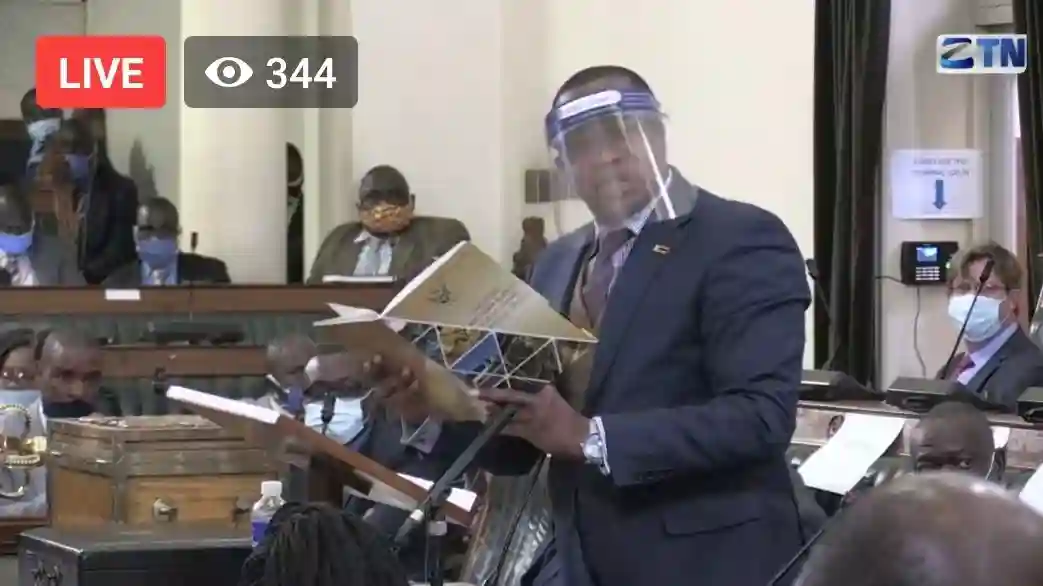Finance and Economic Development Minister Mthuli Ncube on Thursday delivered his mid-term budget review statement, making no major policy decisions and saying he may not need additional funding for his 2021 budget.
He made no major announcements on taxation, the currency, or any measures likely to shake tables immediately.
Here is a summary of some of the main takeaways from Ncube’s statement:
Economic Growth
Ncube revised his initial prediction of 7.4% growth for 2021 to 7.8%. His predictions are far higher than the IMF’s projection of 6% and the World Bank’s 3.9% forecast.
He also said agriculture will this year grow faster than expected. It will grow by 34%, higher than the initially predicted 11%. He bases this on output from key farm segments, such as maize production.
Ncube sees year-on-year inflation slowing down to between 22% and 35% by December 2021.
Vaccine procurement
Ncube said COVID-19 vaccines that have been bought so far have been purchased “utilising the savings from last year, in the main.”
However, for Zimbabwe to achieve the target of 60% of the population, the vaccination campaign will require “mobilisation of additional resources for the procurement of more vaccines, over and above the US$100m resource envelope.”
No extra budget is needed, for now
Ncube has stayed away from asking for more money from Parliament. Unless there is a major shock, he says, there will be no need for a supplementary budget this year.
So far this year, the Government has managed to live within its means. The government raised an estimated Z$198.2 billion in revenues between January and June and spent Z$197.6 billion.
Diaspora’s support for the economy keeps growing
During the first six months of the year, Zimbabweans living abroad sent home a total of US$746.9 million. Over the same time last year, they sent US$288.7 million. Remittances are projected to reach US$1.3 billion by year-end, Ncube said.
The contribution of Diaspora remittances to the economy is growing.
Sold: Gold refinery
Ncube said ten gold miners have agreed to buy the 60% of Fidelity Printers and Refineries, the company that refines and exports gold, for US$49 million.
This will be the first time that the refinery will be in private hands since it was established in 1988.

